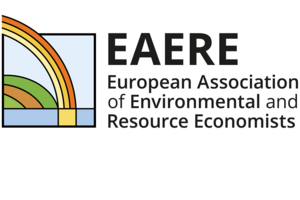zum Thema
How Extremes Adjust to Climate Variability and Change: Tropical Cyclones and Temperatures
Zeit: Montag, 1. September 2014, 10:00 Uhr (s.t.)
Ort: SR des Wegener Center im 1. Stock, Brandhofgasse 5
Moderation: Dr. Andreas Prein
Herzlich willkommen!
Abstract: Societal vulnerability to weather arises largely from relatively rare events at the extremes of the spectrum. As has been emphasized by the IPCC, application of extreme statistics implies that weather extremes should respond strongly to climate variability and change. However, weather extremes also are constrained by available energy together with development capacity and time scale. These physical constraints provide a substantial twist to the purely statistical tail.
In this presentation I discuss the impacts of recent past climate change on current global tropical cyclones and Australian temperatures. I first define climate change by way of the Anthropogenic Climate Change Index. The impact of climate change to current hurricane and temperature extremes is then assessed from both a statistical and physical perspective. Both display similar characteristics, but with a twist:
• Tropical cyclone potential intensity has been increasing relatively slowly, whereas the capacity to intensify has increased substantially. The result is development of a bimodal intensity distributi on with a secondary maximum around category 4 hurricane levels.
• Changes to extreme tropical cyclones over the past 30 years have been quite rapid and can be closely linked with anthropogenic warming.
• When temperature changes are separated into in-situ and advective components, we find that the in-situ extremes have not changed noticeably, but there has been a marked increase in advective maxima.
The physical processes behind these changes are described.
About the speaker: Greg Holland is Chair of the Regional Climate Prediction Program at the National Center for Atmospheric Research (NCAR) in Boulder, CO. He was previously Director of the Earth System Laboratory at the NCAR. His current scientific research is focused on regional climate prediction, hurricanes and applications of extreme value theory. His career in tropical meteorology has included forecasting, teaching, research, and community service, including serving on a number of committees and review boards for NOAA, the National Academies and NASA, and chairing the Tropical Meteorological Program of WMO.
Greg is a Fellow of the American Meteorological Society and the Australian Meteorological and Oceanographic Society and is a member of the WMO Expert Committee on Hurricanes and Climate Change. His publications have included major contributions to six textbooks and forecast manuals, together with over 100 peer-reviewed research papers. He served as lead author for the U.S. Climate Change Science Program report Weather and Climate Extremes in a Changing Climate.





